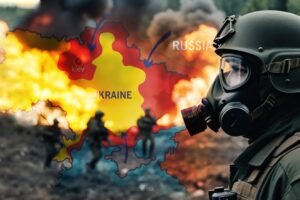Frankfurt, Brussels (4/8 – 30)
As the political crackdown on any form of opposition in Russia continues almost a year after Russia’s invasion to Ukraine, the persecution of Russian environmental activists is also on the rise.
A new report by the Ecological Crisis Group details how law enforcement agencies are targeting environmentalists with Russia’s new anti-war legislation. Eco-activists are targeted for allegedly discrediting the armed forces or spreading fake news about what Moscow insists to name a “Special Military Operation” – the War on Ukraine.
More than 60 eco-activists have been prosecuted for anti-war actions since the beginning of 2022. Arkhangelsk is on top of the 19 regions in Russia studied to find out how authorities are using anti-war legislation to put pressure on environmentalists. Neighboring Komi Republic also stands out in the number of cases.
A total of 16 eco-activists in Arkhangelsk and eight in Komi have got administrative fines for “voicing disagreement with the special military operation”, the overview shows. The 16 people in Arkhangelsk face four criminal cases, two criminal convictions with fines of 260,000 rubles, five detentions, and 22 administrative offenses with fines amounting to 601,000 rubles, the compiled information by Ecological Crisis Group notes.
Meanwhile, police forces in Arkhangelsk continue to harass local environmentalists. In Arkhangelsk, many activists are banned from using means of communication (internet, phones, etc.) as long as investigations, which can take from six to 10 months, go on. In modern life, this actually disconnects people from normal life for a long time. Most of the cases are from Arkhangelsk, but examples of people being harassed by law enforcement also include other cities in the Oblast, in Velsk, Plesetsk, Kholmogorsky district, Kotlas, Severodvinsk and Kargopol.
Russian authorities have over the last few months put a final end to the country’s non-governmental environmental groups. In April, the Bellona Foundation was declared an “Undesirable Organization” by the Prosecutor General’s Office in Moscow. Bellona was one of the many eco-groups working to document the consequences of the infamous 1994 oil spill in Usinsk.
In mid-May, Greenpeace got the same “Undesirable” branding as Bellona. The Prosecutor General’s Office claimed that Greenpeace “intervenes in Russia’s internal affairs” and that its activities “pose a threat to the foundation of the constitutional system and security of the Russian Federation”.
The last environmental organization to receive this brand was WWF in the last week of June. According to the authority, the WWF has a political agenda to hinder Russian industrial development in the Arctic.
The “undesirable organization” law, adopted in 2015, was part of a series of regulations pushed by the Kremlin that squeezed many nonprofit and nongovernmental organizations that received funding from foreign sources. In June 2021, Russian lawmakers approved a bill criminalizing participation in the activities of foreign or international NGOs, recognized as undesirables in the country.
Since launching its aggression against Ukraine, Russian authorities have taken the suppression of freedom in the country to unprecedented levels. Independent media outlets and human rights organizations are being shut down and noted opposition politicians and critics have been jailed or had to flee the country.











